Clayborn Benson preserves Black history, lights a fire in young people to learn from the past
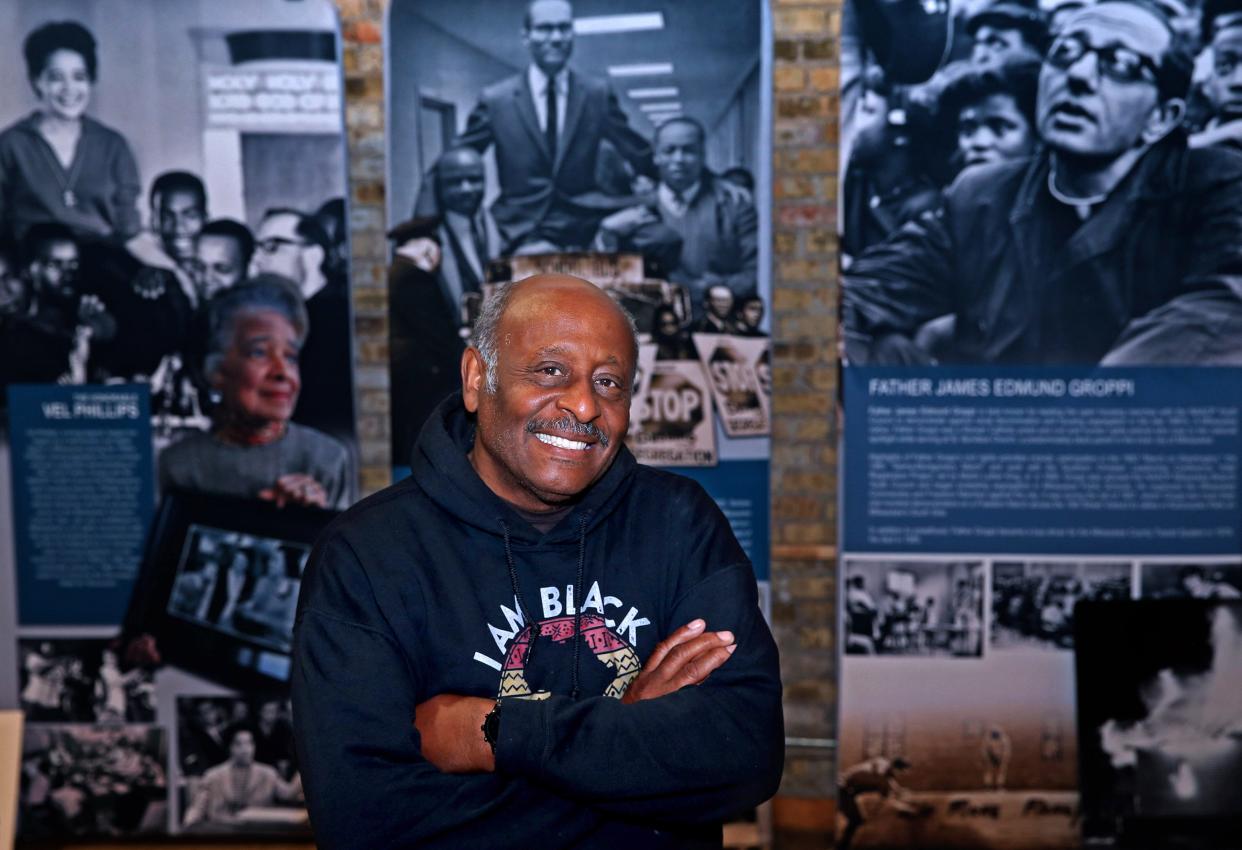
The barbershop is where Clayborn Benson’s interest in storytelling first began.
As a shoeshine boy for seven years at the shop of a man who all but adopted him, Benson heard stories day in and day out.
“All sorts of people would come into the barbershop ... just to get their haircuts and we talked to them and found out about them — that was a natural ingredient for me to get their story,” Benson said.
He recalled that one day, a cameraman came into the shop. He’d decided to unload his equipment. Benson got it.
Armed with a camera, Benson stepped into the world of visual storytelling. It was just the start. He would later go on to work for WTMJ-TV, Channel 4, for almost 40 years as a photographer, producer and editor.
After his retirement, Benson found a new way to continue telling important stories: founding and leading the Wisconsin Black Historical Society and Museum. The society, founded in 1987, focuses on preserving the history of African Americans in Wisconsin through community-centered programming and personal narratives.
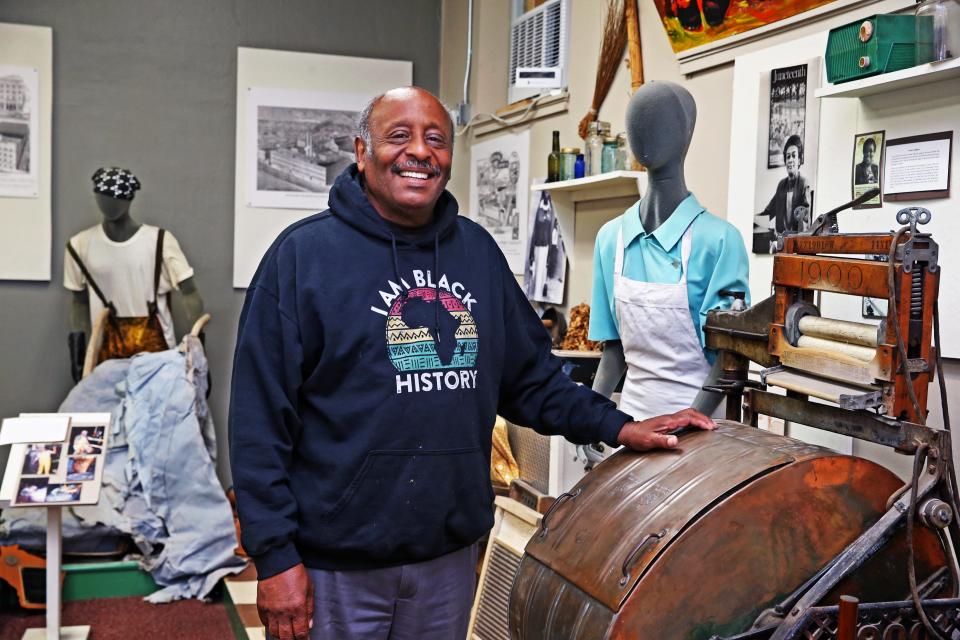
Over the years, it has continued to serve as a safe space for the surrounding community to learn more about their heritage and see themselves represented in American history.
Benson never thought he’d be where he is and it wasn’t an easy journey either.
A history scattered, poorly preserved
From a young age, Benson knew his family was poor. One night, dinner consisted of an old coconut that had been used as a door stopper for months.
His father left when Benson was 3, leaving his mom and sisters. His mother moved the children from Washington, D.C., to Chicago to Milwaukee. Finally settled more permanently in Milwaukee, a man named Henry Moore took Benson under his wing. Without the Moore family, Benson said he wouldn’t have had the freedom to explore what he wanted to be.
One of those things was running for the high school track team.
While at a track meet one day, Benson said he met a photographer who talked to him about the profession. It ignited Benson’s passion and curiosity for the craft.
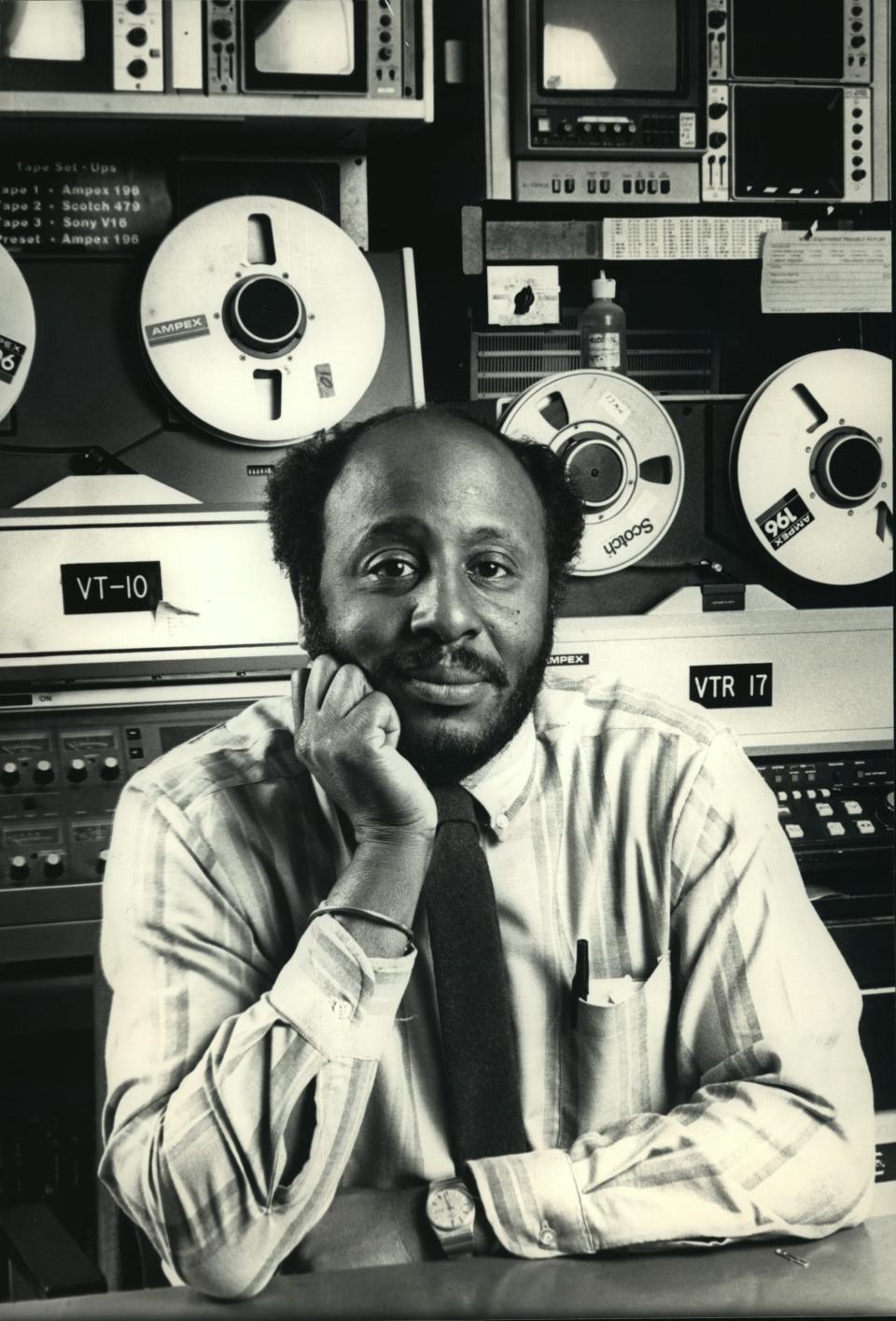
It wasn’t long before he met a WTMJ-TV, Channel 4, photographer, who gave Benson a lift into the industry with a part-time job processing film. Eventually, the station hired him as a news cameraman.
Benson stayed 39 years, traveling all over the world. While working at the station, he also enrolled in Milwaukee Area Technical College's photography training program and later earned his degree in film from the Uiversity of Wisconsin-Milwaukee.
Toward the end of his studies at UW-Milwaukee, Benson received a grant that allowed him to work on a project about the history of African Americans in Wisconsin. The documentary, “Black Communities,” is a three-part film that focused on housing, migration, settlements and trade skills in the U.S. Throughout the project, he and his team traveled all over the state in a mobile home, filming the stories of African Americans. It was only natural that along the way, Benson grew more fond of history.
His travels revealed that records and documents about the history of African Americans in Wisconsin were scattered and poorly preserved. Suddenly, Benson had a new purpose: making sure these stories got told.
That’s where the Wisconsin Black Historical Society comes in.
Difference-maker profile: 'Not just a plant shop': Two Milwaukee entrepreneurs grow a business while impacting Black and brown communities
Difference-maker profile: Joaquín Altoro is dedicated to being the banker of the underserved and underrepresented
Difference-maker profile: 'Education is hope': How Lawrence's Laurie Carter went from first-gen student to university president
Difference-maker profile:For Darryl Morin, spreading the American Dream requires recognizing the dignity of every person
‘Fills a very critical void’
After graduating from UW-Milwaukee, Benson got to work establishing the historical society while still balancing his full-time job at WTMJ.
“I worked both jobs for a very long time. That was hard. I had the morning shift. I had to be at work at four in the morning. And ... from noon to seven I had to be here (Wisconsin Black Historical Society),” he said.
Three years following his graduation, Benson moved the historical society into the building it resides in today, the old Center Street Library building on 2620 W. Center St. People have come from all over to visit the museum, especially for the yearly Kwanzaa celebration.
“We started with no chairs and very few people, and over the course of the years, we've had crowds. They're unbelievable. There's certain crowds where ... you can't walk across the room,” Benson said.
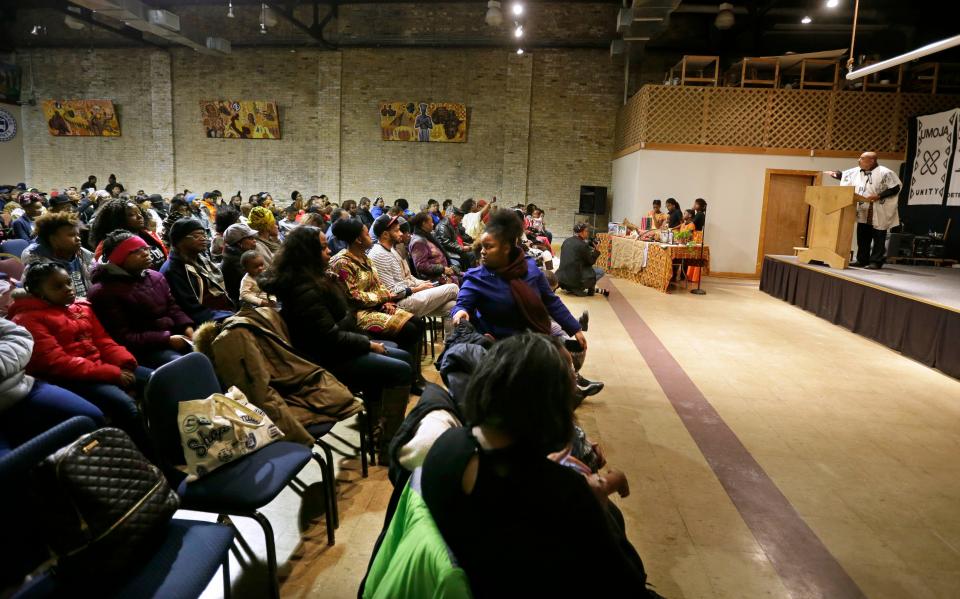
The museum itself stands out from others in Wisconsin.
Anne Panter, former Director of Major and Planned Giving at UW-Milwaukee and current volunteer at the historical society, said that Benson has built a space that brings people together in a polarized world and a place where they can gain a sense of community.
Unlike other museums, Benson also places an emphasis on collecting personal narratives from unrecognized, local heroes who are accomplishing things behind the scenes as a way of documenting history — something that most other museums don’t have the resources to execute.
“As opposed to other museums who focus on ... a horrible event, which we all should know about, this guy, Clayborn, certainly has that, but he chose at the time to build a museum that had relevance about that but beyond that,” said Panter, who has known Benson for 15 years.
And not only is Benson recording history in a unique way, he’s building trust with the community in the process.
“What Clayborn said is bring it. Your story is important and we will take care of it,” Panter said. “He's built this level of trust between members of the community that just never got that from anyone.”
That trust also starts with an acknowledgment of parts of history that have been long overlooked or omitted from history classes.
“It fills a very critical void. His research far exceeds anyone that I've met while being an educator in the state of Wisconsin, which for me dates back to 1968,” said Agnes V. Williams, lecturer for UW-Milwaukee’s School of Education in the Department of Educational Policy and Community Studies.
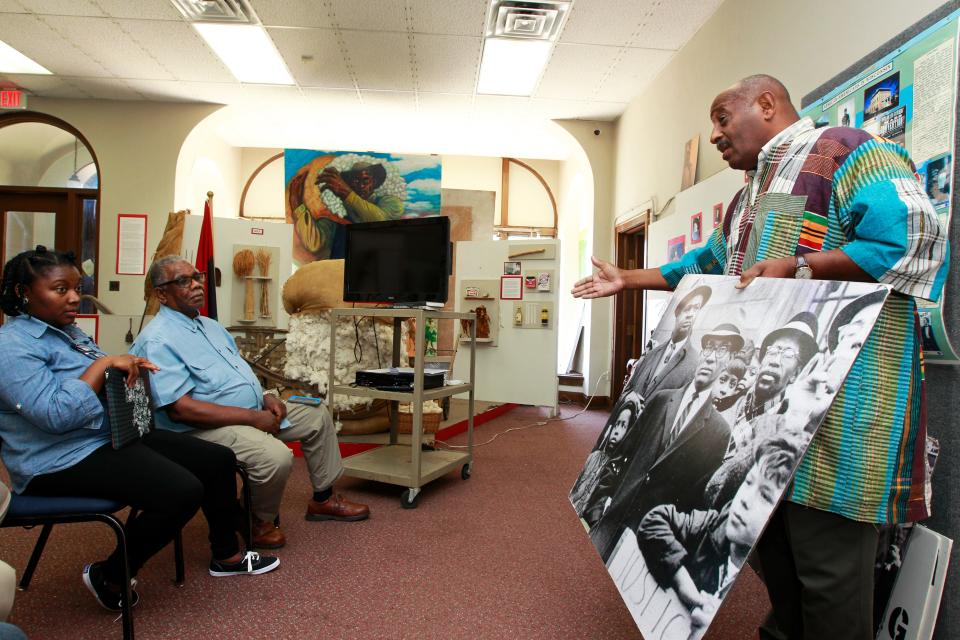
Williams added that by providing more information about African Americans, Benson helps dispel rhetoric that claims they have not made any significant contributions in Wisconsin and also helps ensure that the history is not in danger of being lost.
Filling the gaps in history is even more crucial for Black youth.
Education that lights a fire
From the beginning of the museum’s existence, Benson has recognized the power of connecting youth with their roots. It’s a large part of the museum’s mission.
That’s why Benson started doing genealogies with kids. At these workshops, he works with youth to understand families, family history and the tracing of lineages. Making sure kids know the details of history — like how President Abraham Lincoln’s Emancipation Proclamation only freed slaves of the 10 Confederate states but not border states under Union control, meaning not all slaves were free — is crucial, said Benson.
“Education is everything,” he said. “Kids don't see the value in (history). It’s everything. It's intangible, but it’s so important.”
Part of why it’s important is “knowing the playing field” so that when decisions are made in the current day, children can understand why it’s happening or how they can advocate, he said.
“None of this history is any good in old folks’ hands like mine,” Benson added.
It’s also important to teach this history because children gain more self-esteem and pride when they can see themselves represented.
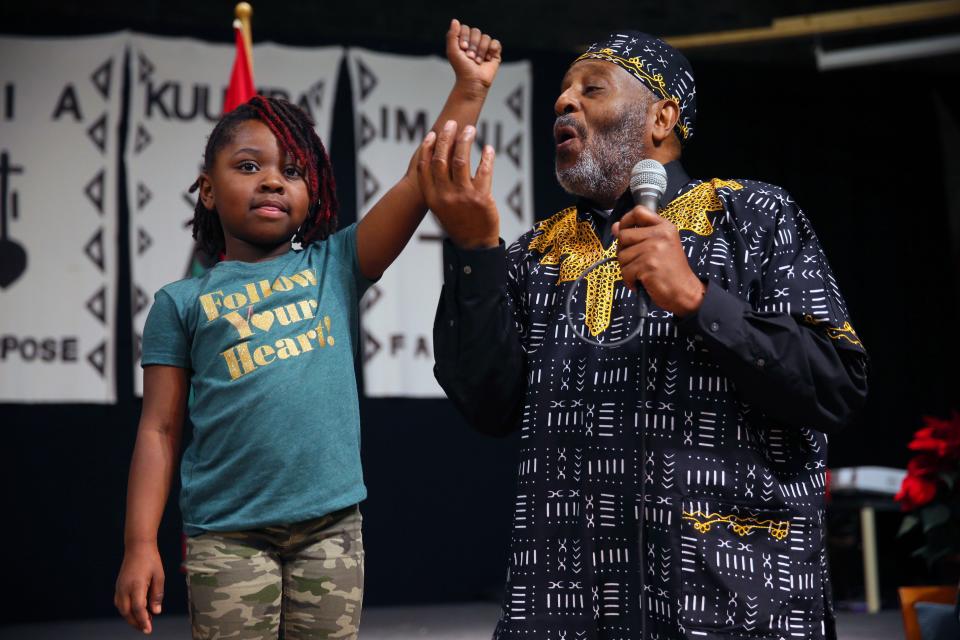
“When students look at history, they want to see themselves. They want to know what people who look like them have contributed,” Williams said.
Every semester, Williams invites Benson to speak to her class at UW-Milwaukee about the role of African Americans in history. She sometimes encourages them to go to Benson with their research questions.
After he comes in or students talk with him, she said, many want to learn more and some make a personal visit to Benson at the museum.
“He just seems to light a fire,” Williams said.
Benson’s work is not just touching youth. He’s also reaching those who were unaware of this history in the first place.
Panter and Williams said they both have learned a lot more about history in the state thanks to Benson.
“He has a wealth of information. He's got it all in his head; he's really a walking encyclopedia,” Panter said.
'Learning all the time'
At 72 years old, Benson continues to put in long hours.
“A lot of times people retire and they retire. That's the end of their work, and they're off to do something more relaxing ... and they say, ‘Well. I've paid my dues,’ but it seems like with Clayborn, that's not the case. He continues to work in the community,” Williams said.
And Benson won’t be stopping his work anytime soon. He is pursuing a master’s degree in history from UW-Milwaukee.
“This is a business about learning all the time,” Benson said. “It’s constantly a quest for the truth. That's one of the things I like about it.”
Williams, who also attends church with Benson, said he’s constantly working to achieve this quest, even at church.
“You think on Sundays, that's a day off, but Clayborn is there filming, documenting the services and then teaching younger members of the church how to use the camera and how to be of service,” she said.
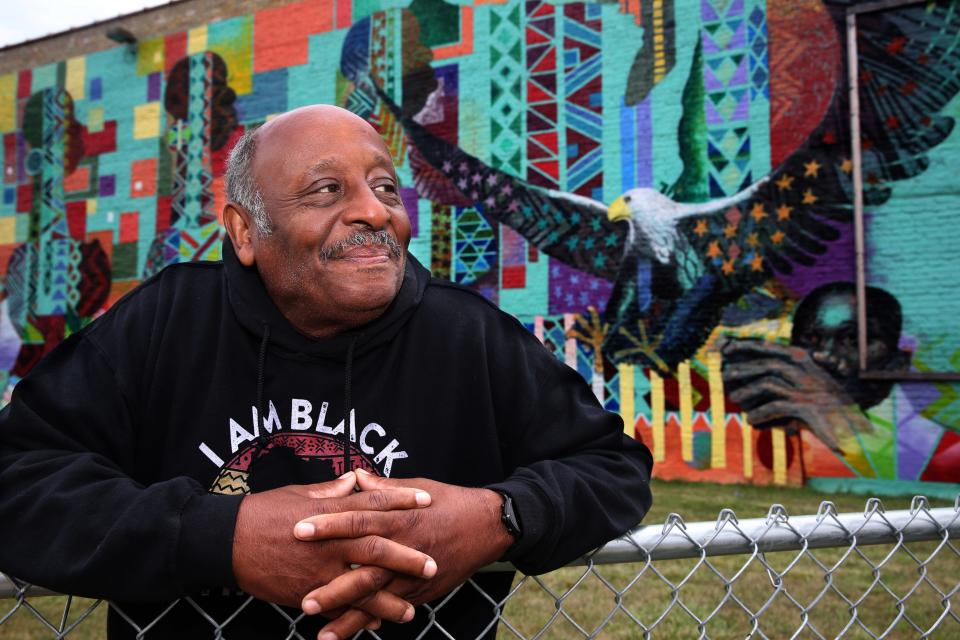
For Benson, history is what he was meant to do, so he’ll keep doing it for as long as he can.
“I really thought that this was my godsent work. This is what I was supposed to be doing and my body and mind has all converted to doing this,” he said.
About this feature
Each week, we’ll be profiling difference-makers in our community. Some may be newsmakers; some may be unsung heroes. We’ll talk to them about their motivations and their life journey, and in the process weave a portrait about what it’s like to live in this place, at this time. If you have suggestions for subjects, please send them to [email protected]. We’d love to hear from you.
More:Wisconsin Black Historical Society starts its seven day Kwanzaa celebration in Milwaukee
THANK YOU: Subscribers' support makes this work possible. Help us share the knowledge by buying a gift subscription.
DOWNLOAD THE APP: Get the latest news, sports and more
This article originally appeared on Milwaukee Journal Sentinel: Clayborn Benson seeks to preserve Black history, educate the community
